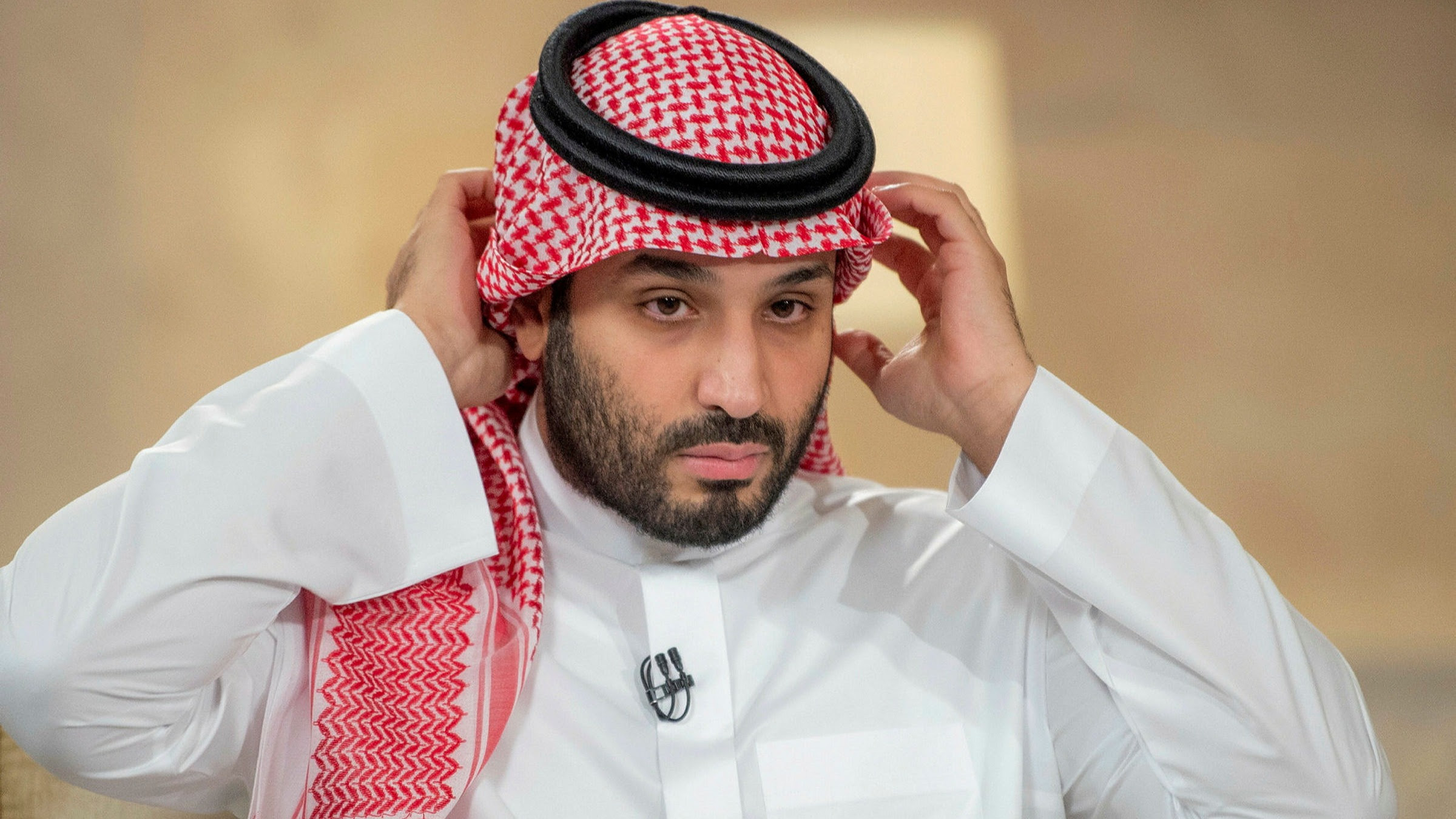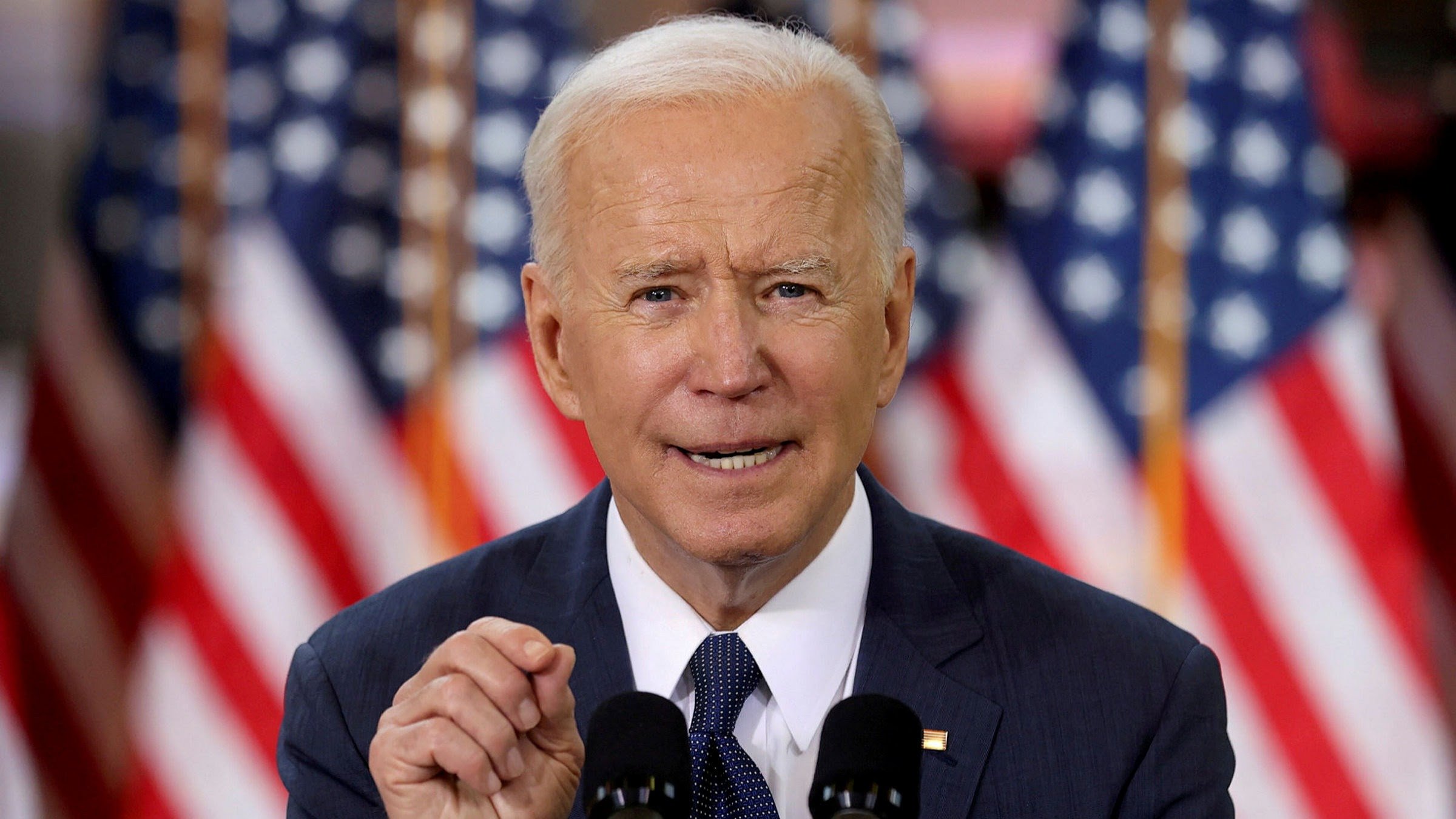|
 |
BY ALEX THOMPSON AND THEODORIC MEYER |
Presented by NextEra Energy |
With help from Allie Bice and Daniel Payne Welcome to POLITICO’s 2021 Transition Playbook, your guide to the first 100 days of the Biden administration The Biden White House has a message for congressional Democrats and allies: eating the rich is popular — so act like it. In a memo exclusively obtained by Transition Playbook that is set to be sent to fellow Democrats this evening, senior adviser ANITA DUNN argues that “we need to restore basic fairness to the tax code, and in the process generate revenues to invest in our competitiveness, children, and economy. And, the American people agree.” The memo — entitled “The American People Support President Biden’s Tax Proposals” — spotlights several recent polls showing majority support for raising capital gain taxes on those who make over $1 million per year and for raising corporate taxes. President JOE BIDEN has already called for raising the corporate tax rate to 28 percent to help pay for his infrastructure package; he’s expected to pitch raising capital gains taxes on Wednesday night in his first joint address to Congress. “If critics want to turn this into a debate over taxing the wealthy and big corporations to pay for investments in the middle class, we’re happy to have that fight,” said one White House official. “The American public is squarely on our side – it’s not even close.” A fight over raising corporate taxes could put some Republicans in an awkward spot as many GOP leaders are trying to rebrand as the “working class” party and build on the inroads DONALD TRUMP made with those voters. They’ve also been threatening corporations for weighing in on cultural issues and voting rights legislation in several states. But while congressional Republicans are likely united in their opposition to Biden raising any taxes, there are some divisions about how much the party should focus on the issue as they try to fight Biden’s proposals. "I don’t think you will see Republicans advocate for higher taxes but the enthusiasm to oppose them has waned considerably in recent years,” said a senior aide to a high-ranking GOP House member. “Why should Republicans continue to do the bidding of corporations when they don’t have the best interest of voters in mind?” That echoes Biden’s pollster JOHN ANZALONE who has also been urging Democrats to go on the offensive when it comes to talking tax hikes, as Axios reported. It’s not clear how much Biden himself will lean into the fight during his speech. And while Dunn’s memo frames taxing the wealthy as a political winner, there appear to be some places on that front where the White House won’t go. The president will not call for raising the estate tax to pay for his infrastructure and care initiatives, as first reported by Bloomberg and confirmed by Transition Playbook. Biden ran on raising taxes, but he shied away from some of the more aggressive rhetoric of BERNIE SANDERS (who introduced a tax bill with the acronym of “STOP BEZOS”) or ELIZABETH WARREN who sold “Billionaire Tears” mugs. While that line got all the press, it was Biden’s next sentence that was more revealing: “When you have income inequality as large as we have in the United States today, it brews and ferments political discord and basic revolution.” That focus carried over into the transition with longtime Biden aide TED KAUFMAN making a commitment to fighting income equality something of a litmus test for members of the economic team. The Biden team also looks poised to keep its tax plans focused on the ultra-wealthy. Dunn argued that Americans are against hiking the gas tax to pay for infrastructure, citing a recent poll conducted by Data for Progress and Invest in America that found 59 percent of voters (including 68 percent of Republicans) “oppose gas taxes to fund increased investment.” (The gas tax, of course, affects millions of Americans making less than $400,000 a year, whom Biden has pledged not to raise taxes on.) Trade groups such as the U.S. Chamber of Commerce and the American Trucking Associations have lobbied in favor of raising the gas tax as a way to pay for the infrastructure spending. The Chamber has argued that while voters might say they back raising the corporate tax rate, they don’t realize that corporations might pass increased costs onto them. “When you tell somebody, ‘Hey, would you want corporations to pay for infrastructure?’ everyone says yes,” said ED MORTIMER, the Chamber’s vice president for transportation and infrastructure. But it’s the customer “that is going to end up paying for any potential corporate tax increase,” he added. The bipartisan Problem Solvers Caucus also pitched raising the gas tax, which isn’t indexed to inflation and hasn’t been hiked since 1993, in a report on Friday. But Rep. JOSH GOTTHEIMER (D-N.J.), the group’s Democratic co-chair, immediately disavowed the recommendation. “Personally, I'm against raising the federal gas tax,” he tweeted. The White House has also thrown cold water on the idea, due to the tax being regressive. “We don't believe that the cost [of the infrastructure bill] should be on the backs of the American people,” White House press secretary JEN PSAKI told reporters earlier this month. “We believe that corporations should be able to bear the brunt for investing in America's workers.” |
 |
Presented by NextEra Energy |
With help from Allie Bice and Daniel Payne Welcome to POLITICO’s 2021 Transition Playbook, your guide to the first 100 days of the Biden administration Through the course of JOE BIDEN’s presidential campaign, SARAH MORGENTHAU, an attorney and former Obama administration official, was both a public and behind-the-scenes force. She was national co-chair of Lawyers for Biden, a prolific fundraiser and a volunteer on national security policy groups for the campaign. She served as a surrogate who was frequently quoted in national publications about the trajectory of the race or the temperature of donors. At the same time, Morgenthau was having discussions with TONY BLINKEN (now secretary of State) and BRIAN McKEON (now deputy secretary of State for management) about a century-old ethnic cleansing campaign that a U.S. president had yet to formally recognize: the Armenian genocide. Morgenthau has a powerful connection to the tragedy, one that dates back more than 100 years and is intimately entwined with her family history. She is the great-granddaughter of HENRY MORGENTHAU SR., the U.S. ambassador to the Ottoman Empire, who in 1915 documented systematic atrocities against Armenians. On Saturday, Biden became the first U.S. president to call the mass killings a genocide, a designation Turkey had actively lobbied against for decades. In the sea of coverage over the weekend, Morgenthau Sr.’s role and his standing in the Armenian community were repeatedly highlighted. Among the Armenian diaspora, he is an exalted figure, a hero for sounding the alarms and dispatching detailed, contemporaneous accounts of "a campaign of race extermination,” as his cable to the State Department on July 16, 1915, said. “Joseph Biden's recognition of the Armenian Genocide is the affirmation of a legacy of Ambassador Henry Morgenthau,” said ROUBEN ADALIAN, director of the Armenian National Institute. “Effectively, he was the very first person in the world to alert humankind, that part of it was being subjected to genocide. That’s how important and historic a figure he really is.” While Morgenthau Sr.’s efforts to aid the Armenians in modern-day Turkey failed, he made it his mission to tell the world what was happening and successfully urged a philanthropist friend and other New Yorkers to start the Armenian Atrocities Committee (which later became the Near East Foundation) credited with bringing life-saving relief, including basic food, shelter, and clothing, to hundreds of thousands of Armenians who were scattered across the Middle East. In addition to serving as U.S. ambassador to Turkey under President WOODROW WILSON, Morgenthau Sr. led the Democratic National Committee’s finance committee. His offspring have continued to be a major presence with Democratic politics for more than a century. HENRY MORGENTHAU JR. was a close friend of President FRANKLIN ROOSEVELT and served as his Treasury secretary for more than a decade. “The family legacy repeats itself when his son becomes the man who notifies Franklin Roosevelt about the Holocaust in a formal manner,” Adalian said. During FDR’s tenure, ELINOR MORGENTHAU, Morgenthau Jr.’s wife, and ELEANOR ROOSEVELT were close. The then-first lady famously resigned from the Colony Club of New York in protest over its refusal to admit Elinor because she was Jewish. One of Henry Morgenthau Jr.’s sons, ROBERT MORGENTHAU, raced sailboats with JOHN F. KENNEDY as a young man. When Kennedy was elected president, he tapped Morgenthau as U.S. attorney for the Southern District of New York, a post he used to go after Wall Street and organized crime. Robert Morgenthau became an icon in the legal world, going on to serve for more than 35 years as “Gotham’s aristocratic Mr. District Attorney,” as his New York Times obituary put it. He also helped found the Museum of Jewish Heritage — A Living Memorial to the Holocaust. Through the decades, the Morgenthau family and the Armenian-American community have been connected-- from travel to electioneering to philanthropy. “From a very young age, I got this real sense of wanting to be engaged, wanting to serve, wanting to help in whatever small ways that I could,” Sarah Morgenthau said. Under Obama, she served as deputy assistant secretary at the U.S. Department of Homeland Security and a senior political appointee at the U.S. Peace Corps. In her talks with the Biden campaign, she added her voice to those advocating for Armenian issues. Sarah’s brother, HENRY MORGENTHAU IV (who goes by Ben), has planted trees in Armenia, and attended Armenian weddings and Red Sox games with Armenian Americans. He visited Armenia twice, once with his late father in 1999. “I remember distinctly walking down the streets of Yerevan and people coming up to my father in tears and saying, ‘Thank you.’ It wasn’t my father who they really wanted to thank. They were thanking the ambassador,” he said. “The emotional response has always been incredible. It speaks to the depth of the wound. I feel pride in our country for finally doing it.” MEA CULPA: Wednesday’s newsletter on VINAY REDDY prompted an unprecedented amount of feedback. And we want you to know that we hear you: University of Miami is not Miami University. We regret the error so please stop emailing us about it. Reddy went to Miami University (Ohio). |













